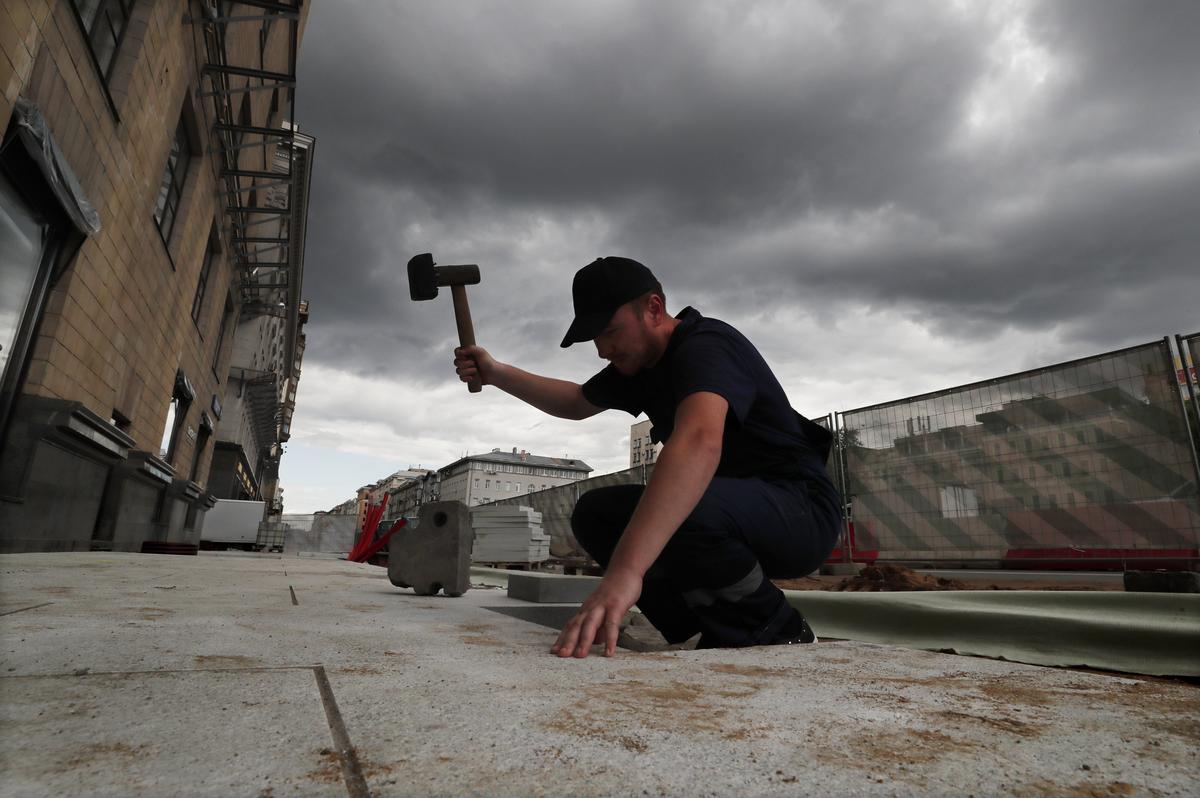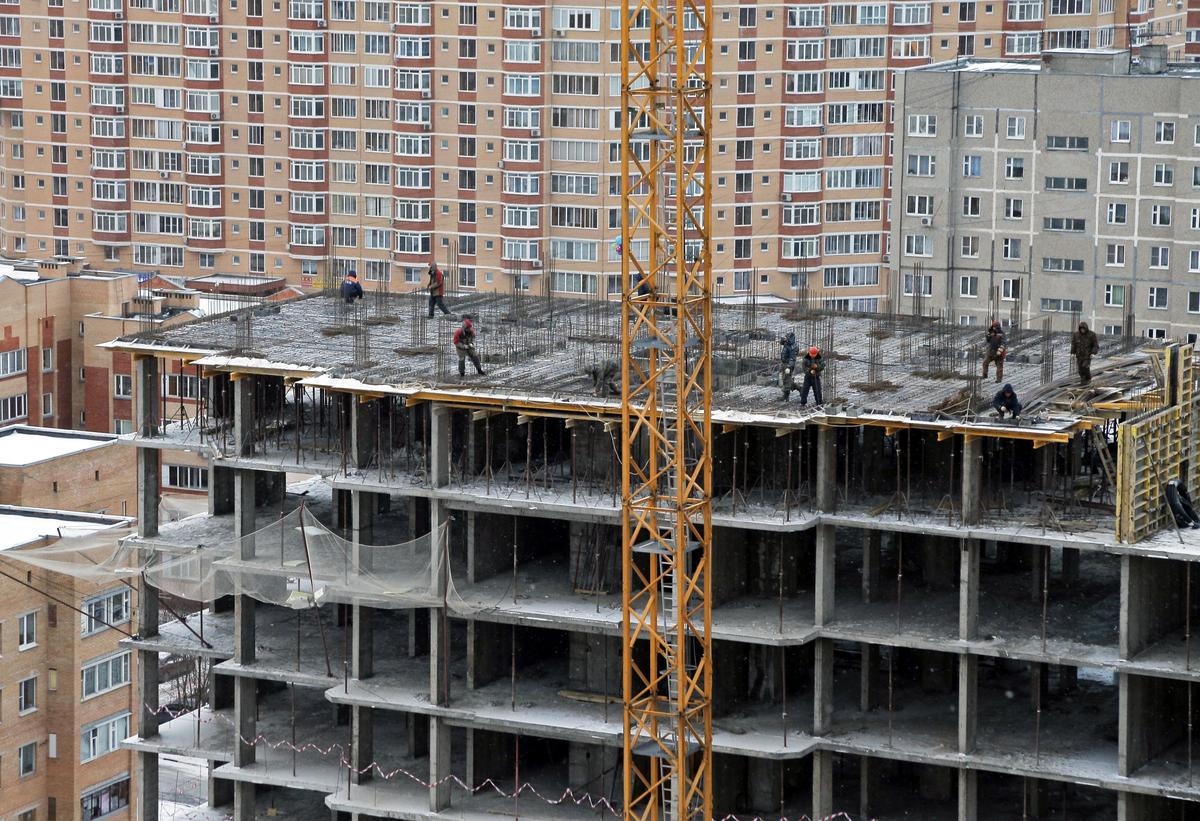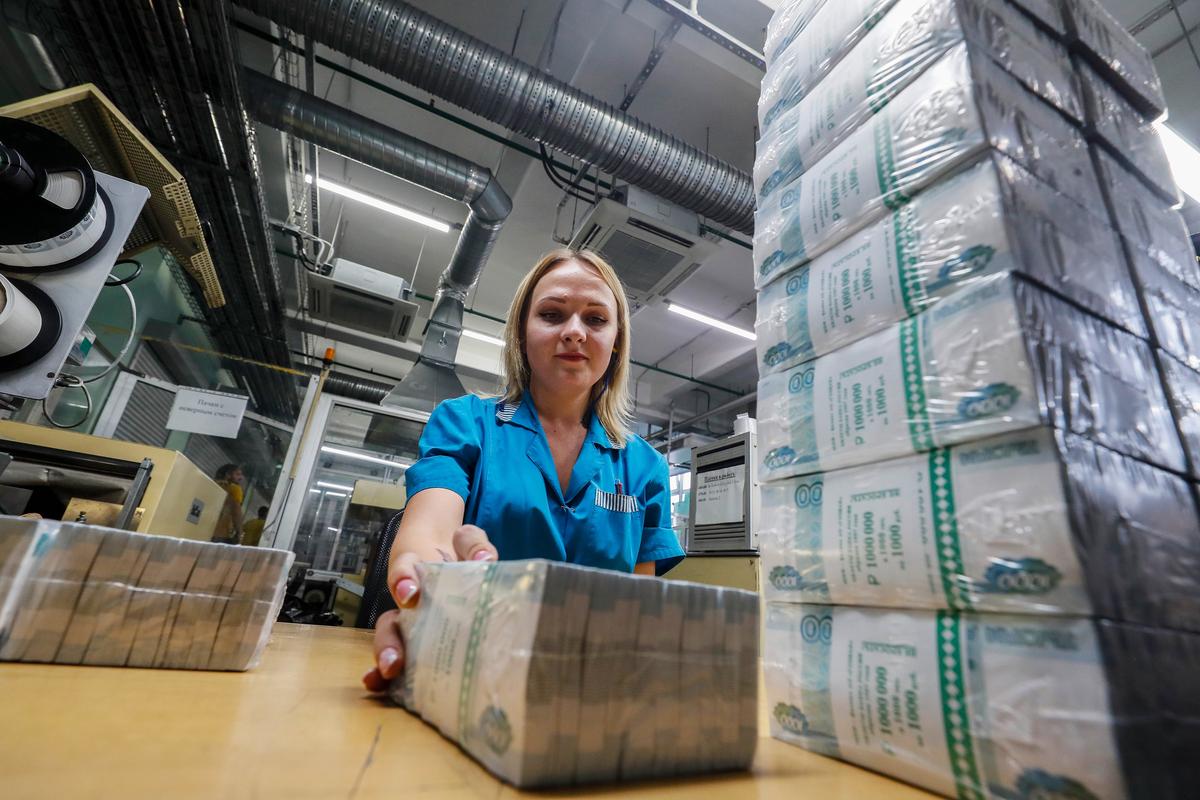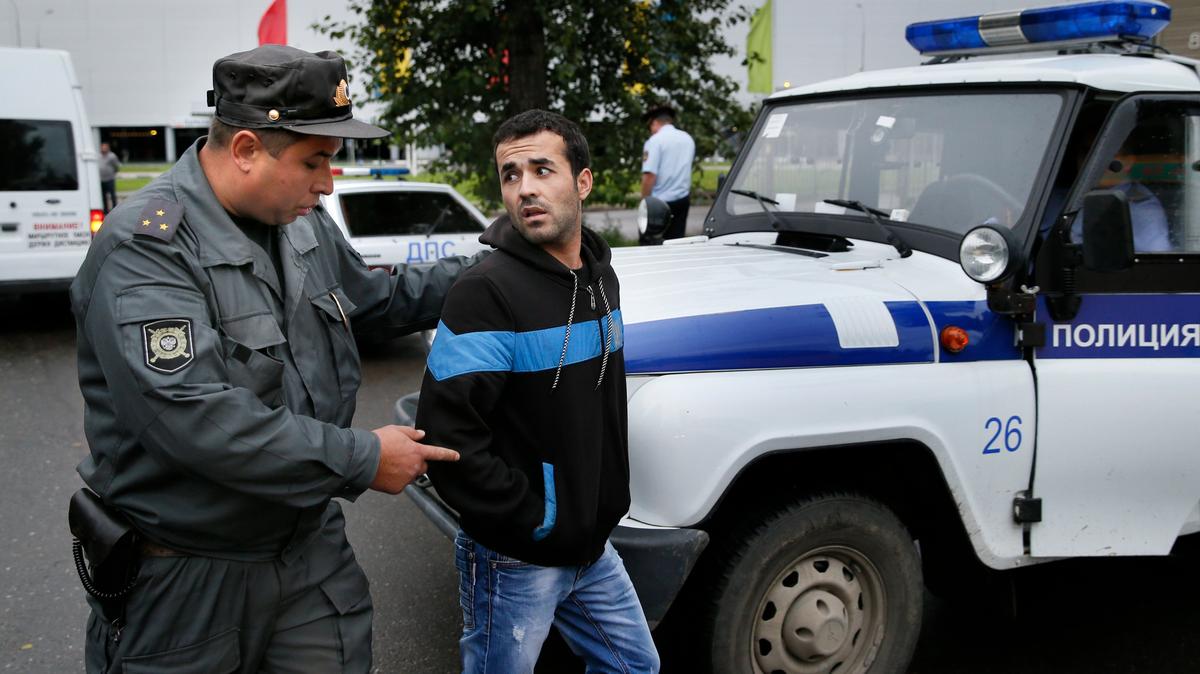Armenian migrant workers are increasingly shunning work in Russia in favour of opportunities back home, disillusioned by the devaluation of the ruble, stricter anti-migration policies, as well as growing levels of hostility toward foreigners.
For years, Vahram Tonoyan has left his wife and daughters behind in Armenia’s second city Gyumri each spring and travelled to Russia where he would work for most of the year, regularly sending remittances back home to support his family. Yet following the Russian invasion of Ukraine in 2022, Tonoyan began to find being a migrant worker in Russia far less attractive.
Tonoyan gave up his accommodation on the outskirts of Moscow last year and moved back to his hometown once he realised that his salary was insufficient to support his family in Armenia. “It’s not a financially sound option for me anymore,” the 58-year-old explained.
With few to no well-paid employment options at home, many Armenians travel abroad to work, and, of those who do, some 96% find it in Russia, where they live for most of the year, returning home briefly in the weeks before New Year, when the cold weather in Russia often puts a temporary halt to work.
In 2022, the number of Armenians seeking employment in Russia dropped by 8.7 %, and has continued to fall since then according to both the Armenian Central Bank and Russia’s Interior Ministry. This is largely due to the ruble’s devaluation since Russia’s invasion of Ukraine, which has made salaries in Russia comparable to those available in Armenia.
“In recent years, our economy has grown in sectors such as construction, where previously many workers travelled to Russia for jobs. However, with increased salaries and more job opportunities in this sector, many labourers now prefer to stay in Armenia and work for local companies rather than for Russian ones,” Yerevan-based economist Haykaz Fanyan told Novaya Gazeta Europe.
Russia’s wartime economy is not the only reason that traditional migration patterns are changing, however. Since the terror attack on Moscow’s Crocus City Hall in March, in which 144 people were killed and another 550 were injured, the Kremlin has taken active steps to complicate the lives of migrant workers in Russia, further tightening legislation in what was already a hostile environment for outsiders.

A migrant worker lays paving stones on Moscow’s Tverskaya Yamskaya Street, 19 July 2017. Photo: EPA / YURI KOCHETKOV
In July, Moscow region police chief Viktor Paukov said publicly that his main task was to “lighten up the Moscow region so that it won’t be darkened — as it were — by foreigners.” While the Kremlin crackdown has focused on Central Asian labourers in particular, Tonoyan said that Armenians faced similar treatment themselves.
“I had been working in Moscow since 2010, and there were no such issues. We used to have certain privileges, but now we’re facing migration restrictions,” he said, adding that he had experienced the diplomatic spats between Yerevan and Moscow himself at street level.
Though traditionally close allies, Armenia and Russia have seen their relations sour significantly in recent years, particularly after Azerbaijan’s military operation to recapture the disputed breakaway region of Nagorno-Karabakh in 2023, forcing 100,000 ethnic Armenians to flee.
While the Russian government’s onerous restrictions on foreign labourers were introduced before its invasion of Ukraine, they have only become tougher since then.
“Armenian–Russian relations have deteriorated a lot; that’s why they resent us,” Tonoyan said. “When we talk to Russians, they say, ‘Why do you blame us when your leader says that Karabakh belongs to Azerbaijan?’”
Legalised discrimination
While the Russian government’s onerous restrictions on foreign labourers were introduced before its invasion of Ukraine, they have only become tougher since then.
Since December 2021, migrants seeking work in Russia have been required to complete fingerprinting, registration, and extensive medical examinations within 30 days of arrival. However, in July, the State Duma adopted new laws prohibiting migrant workers from leaving their region of residence, driving vehicles, acquiring property, or getting married. These regulations also apply to Armenian citizens, despite Yerevan’s membership of the Eurasian Economic Union (EAEU), a Russia-led trade bloc.
From next year, though, migrants will also be required to sign a so-called loyalty agreement, in which they must pledge to respect Russia’s laws and traditions. The government’s fresh anti-migration drive has also empowered the police to ramp up mass raids on migrant communities and workplaces, and has allowed foreigners to be deported on the say-so of the police, something that in the past always required a court decision.
“The registration process and the medical examination requirement are complicated. There was a large crowd of migrants waiting in line, and going through the process required a lot of time and money,” according to Arman Nikolyan, 30, who described the ordeal as “unbearable”.
Nikolyan, who left Russia last September after working there for six years as a tractor driver, said he had no desire to return to the country and that he found it more financially beneficial to work in his home village of Malishka, 130 kilometres southeast of Yerevan, rather than travel thousands of kilometres to Russia.
From next year migrants will be required to sign a so-called loyalty agreement, in which they must pledge to respect Russia’s laws and traditions.
He also described how Russians, who would once greet him and his friends as “brother Armenians”, had altered their behaviour. “There are no more warm words. There’s nothing like that anymore. Instead, there are just lots of inspections targeting foreigners,” Nikolyan told Novaya Europe. “Before, even during document checks, they seemed glad that we had come to work in Russia; now, it feels like we’re no longer welcome in the same way.”
The pace of change in migration patterns is striking — the Russian authorities deported some 92,800 foreign nationals in the first seven months of 2024, a 53.2% increase on the same period last year, while recording the lowest number of new migrants for the past 10 years in 2023.
“For short-term seasonal migration, Russia still attracts individual migrants who come for specific projects for three or four months and then leave. But it has become a less attractive destination for those who consider Russia their new home,” according to Temur Umarov, a Carnegie Russia Eurasia Center fellow, who has in the past described Russia’s anti-migration policies as nothing less than “legalised discrimination” against foreigners.

Migrant workers building an apartment block in Podolsk, outside Moscow. Photo: EPA/MAXIM SHIPENKOV
Last month, former Russian president Dmitry Medvedev told a policy meeting that Russians were tired of what he called the “outrageous behaviour of some migrants”, and urged policymakers to “meet the needs of our citizens and not those of foreign states or groups, no matter how important they are to us”.
Medvedev also said that migrant children should no longer be admitted to Russian schools until they had learned to speak Russian. Umarov, who has already noted a rise in cases of migrant children facing issues accessing education in Russia, stressed that getting migrant children into Russian schools could already be a challenging process even before 2022. However, before the war, independent NGOs were at least free to advocate for children’s rights to an education.
“We see that some schools are individually imposing restrictions and forcing migrant children to undergo testing, which prevents them from entering the education system. In addition, the Education Ministry has recommended schools limit the number of foreign students they admit,” Umarov said.
Economies under strain
For years, Armenian migrant workers have been responsible for a significant proportion of the country’s GDP, with cash remittances sent from Russia growing to €3.7 billion in 2023, whereas they were generally around €850 million before the war.
Russians who transferred their savings to Armenia after relocating there to flee mobilisation are one of the main reasons for this surge. However, with the war in Ukraine set to enter its fourth year, many Russians are leaving Armenia and taking their money with them. Meanwhile, as the number of Armenians going to work in Russia declines, so do their remittances.
“I barely earned enough money for my daily needs and just tried to save as much as I could to help my family make ends meet,” said Hamazasp Grigoryan, a 64-year-old from the village of Malishka in southern Armenia, who decided to return home following Russia’s invasion of Ukraine.

Freshly printed 1,000-ruble banknotes at the Moscow Printing Factory, 11 July 2019. Photo: EPA-EFE/SERGEI ILNITSKY
Meanwhile, Russia has been experiencing a historic labour shortage due to an exodus of foreign workers. Government data recently revealed that the Russian economy experienced a shortfall of 2.7 million workers in the second quarter of 2024, particularly in the construction, agriculture, and transport sectors.
In mid-September, Central Bank head Elvira Nabiullina warned that the country’s acute shortage of labour posed a threat to Russia’s economic growth. Nevertheless, government officials maintain that businesses will find a “competent and rational solution” to replace migrant workers, without explaining exactly how.
Unlike the far larger communities of migrant workers from Uzbekistan or Tajikistan, “Armenians make up just 3% of the migrants in Russia,” according to Armenian migration expert Tatevik Bezhanyan. “Armenians mainly work in sectors such as construction and car repair, so there may be some impact on those sectors. However, our numbers in the overall flow are quite small.”
“There is a significant gap in the Russian labour market, and it surprises me that migration restrictions are being imposed, even going as far as banning migrants from working in specific sectors,” Bezhanyan continued. “Unfortunately, in most cases it is impossible to fill this gap with Russians.”
Join us in rebuilding Novaya Gazeta Europe
The Russian government has banned independent media. We were forced to leave our country in order to keep doing our job, telling our readers about what is going on Russia, Ukraine and Europe.
We will continue fighting against warfare and dictatorship. We believe that freedom of speech is the most efficient antidote against tyranny. Support us financially to help us fight for peace and freedom.
By clicking the Support button, you agree to the processing of your personal data.
To cancel a regular donation, please write to [email protected]

